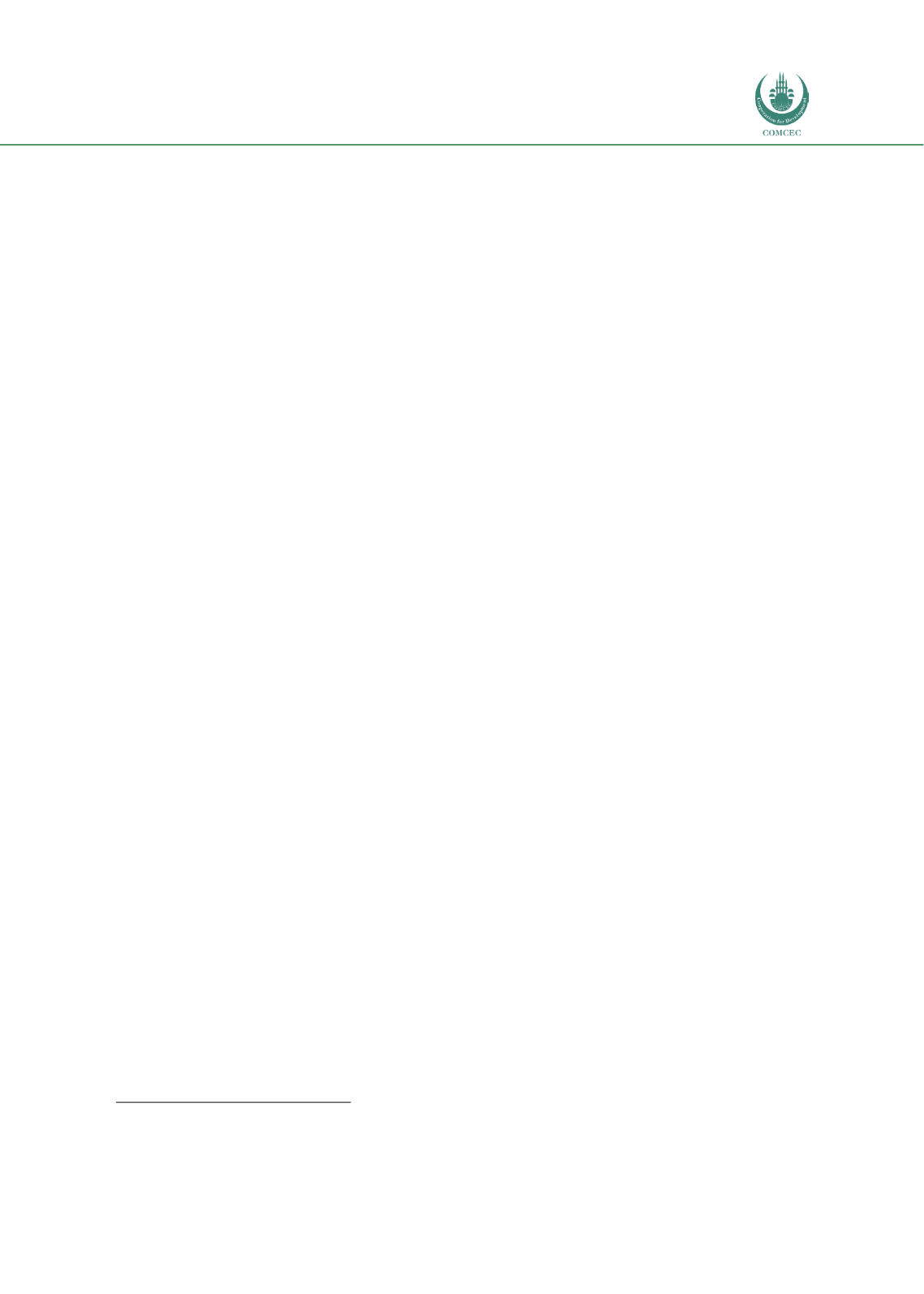

Infrastructure Financing through Islamic
Finance in the Islamic Countries
147
supported by other related laws such as the Sukuk Act of 1995 (SA, 1995),
the Civil
Transactions Act of 1984 (CT Act 1984)
, and the Money Laundry (ML) & Terrorism Financing
(TF) Act of 2014. The taxation system in Sudan supports the sukuk market. The profit taxation
of all kinds of GICs, Sukuk, and any other financial investment instruments is completely
exempted based on the Sukuk Act 1995, clause number (20/a) (Sukuk Act, 1995).
4.5.5.
Role of Islamic Finance in Infrastructure Finance
The bulk of the infrastructure investments in Sudan have been done by the government.
However, government revenue has been stressed after the secession of South Sudan in 2011.
While the revenue for oil was 10-11% of GDP while non-oil revenues accounted for 7% of GDP,
after the secession the oil revenue fell to below 2% of GDP (in 2013-2014) and non-oil revenue
increased to around 10% of GDP. The result was that public revenue dropped from 17% of
GDP in 2005 to 10-11% in 2012-2014 (AfDB 2016: 47). This called for the generation of funds
from other sources including the private sector. Since the whole financial sector in Sudan is
Islamic, any funds raised from the private sector for infrastructure development would be
Shariah-compliant.
Providing finance for infrastructure can thus be made directly by banks and other financial
institutions or through different Islamic financial instruments such as sukuk. For the latter,
Islamic financial institutions can invest in government-issued sukuk and the GICs.
66
These
instruments are listed and traded in KSE and some are also traded between banks. The role of
different stakeholders in infrastructure investments is discussed below.
4.5.5.1.
Government Linked Companies (GLCs)
A feature of infrastructure development in Sudan is that projects are financed through joint-
ventures between the government, local and external government, and private sector entities.
This is done through establishing companies that are directly controlled by the government.
An example of a government-linked company (GLC) is Sudatel which is the
main telecommunications and internet service provider in Sudan. It was one of the first SOEs
that was privatized in the early 1990s as part of the Government National Privatization Policy.
The Telecommunications Liberalization of the sector began in the early nineties as part of the
national privatization policy. The aim of the privatization of the telecommunication sector was
to overcome the lack of efficiency and productivity and to renovate the country’s
communication setup through the enabling of a private sector share.
Sudatel is in charge of the construction and maintenance of Sudan's telecom infrastructure.
The company has more than 60% shares owned by the Sudan government and the rest of
stocks belong to private individuals and corporate interests. It has been listed in the KSE since
the 1990s and in the Abu Dhabi Stock Exchange since 2003 (KSE, 2017). Sudatel
holds stocks in different ICT companies such as Arab Cables with a 40% share, Thurya Mobile
Phone Service, Rascom, Sudanet with a 51% (between 2005 and 2007, it managed to acquire
100% of Sudanet), Datanet (Sudan) with 99% share, Hawatif Corporation, Expresso Telecom,
and Sudani One.
66
These Sukuk & GICs are issued through the Sudan Financial Services Company (SFSC), which is a limited liability Company
owned by CBOS and the Ministry of Finance and National Economy based on a 99% capital share to CBOS and 1% to the
Ministry.
















